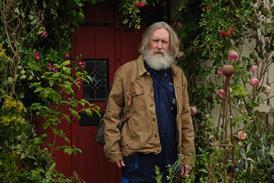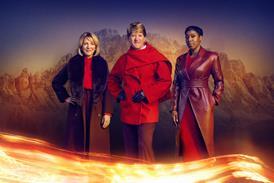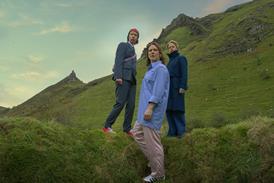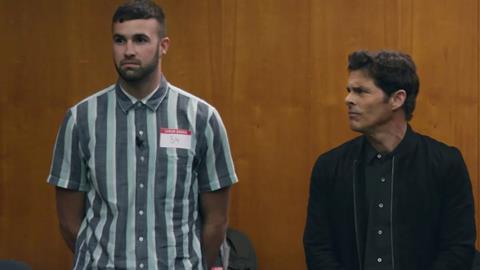Stopping viewers from sharing footage on social media risks losing the buzz created by great TV moments
It feels like quite a lot, when you have just stumbled across this article, to then ask you to do something else, but bear with me.
Head to Netflix, ITVX, Channel 4, My5 or Amazon Prime Video on a phone or tablet. Press play on any bit of content. Now, when you’ve found a scene or quote that you find interesting, try making a screenshot, which saves the picture to your device. You can easily do it on an Apple device by quickly pressing the power button and a side button at the same time.
Blank screen, right? It even happens when you watch content on a laptop. You can still see the show on the screen in front of you, but what gets saved to your photo album is a blank image, perhaps bar some subtitles on the screen that might have slipped through.
There’s an obvious reason why you can’t share such images: copyright. Infringement is something broadcasters and streamers are very concerned about and are clamping down on, especially during a time of streaming consolidation and squeezed advertising budgets.
“The irony of broadcasters and streamers clamping down on infringement is it risks actually hurting the programmes they are trying to protect”
But the great irony is that such a large clampdown, which has evolved from Netflix to just about every other broadcaster, platform and streamer in the past year or so, risks actually hurting the very programmes they are trying to protect.
The internet and social media thrive on great television moments: from Come Dine With Me’s “You won Jane, I hope it makes you very happy”, to when a dog called Bounce appeared on the BBC News channel and sat up like a newsreader.
Yes, broadcasters and streamers often upload such clips to social media to capitalise on them being talked about, but these moments also tend to be spotted, grabbed and uploaded by the viewers themselves, eager to share and talk about them.
A recent example of this is Jury Duty (pictured top) – a Beadle’s About-style reality show where a member of the public thought they were serving on a jury, when in fact it was a set-up, featuring actors. The show risked being missed, as it debuted on a relatively new streaming service called Amazon Freevee that hardly anyone – apart from Neighbours fans keenly awaiting new episodes – has heard about.
Yet, thanks to the huge number of videos and memes uploaded by fans, especially on TikTok, the show quickly became a big talking point.
In an age of endless choice, social media is the greatest form of advertising. But due to concerns over copyright, these moments are becoming harder for viewers to grab.
Just look at Bake Off . When the show was on the BBC, fans used to regularly make videos and memes, even compilations, to highlight and follow their favourite personalities. But if you try to grab a still from any show on C4? A blank screen. Meanwhile, on its old home, BBC iPlayer, you can still grab footage easily.
In fact, BBC iPlayer remains one of the last places you can easily take live footage and stills without limitation. I wonder whether that policy is paying dividends. The Eurovision Song Contest last month announced that it had broken online engagement records. My gut instinct is that the BBC and Eurovision’s relatively lax approach to fans grabbing material contributed to that success.

It keeps the fans in charge, letting them share the moments they find interesting, and driving more young audiences to the contest itself.
Ironically, I’d suggest you don’t screengrab this piece and send it to anyone at BBC iPlayer. Why? Just in case the BBC doesn’t actually realise its policy is rather relaxed compared with its rivals. It is the BBC, after all. In a column all about a clampdown on copyrighted material, I’d hate to end up being the one responsible for making it worse.
- Scott Bryan is a media journalist, presenter and entertainment critic






























No comments yet